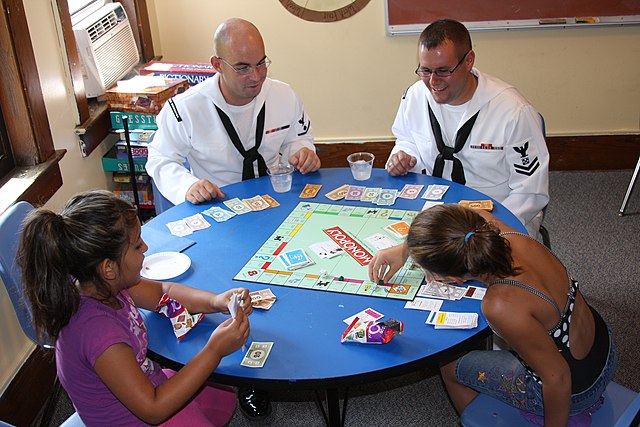Shogi , also known as Japanese chess, is a strategy board game for two players. It is one of the most popular board games in Japan and is in the same family of games as Western chess, chaturanga, xiangqi, Indian chess, and janggi. Shōgi means general's board game.
A game of shogi (Fortress opening)
A traditional shōgi ban (shogi board) displaying a set of koma (pieces). The pieces on the far side are turned to show their promoted values. The stands on either side are komadai used to hold captured pieces. The board itself is raised for the comfort of players seated on tatami mats (background), and is hollowed underneath to produce a pleasing sound when the pieces are moved.
Closeup of shogi pieces. Top: +R, R, K (reigning), K (challenging), B, +B. Bottom: +L, L, +S, S, G, N, +N, P, +P
Another popular style of shogi pieces different from the usual Japanese characters. Shows a 7-move tsumeshogi problem. White has pawns on 13, 24, 34; king on 23; and a promoted rook on 29. Black has a bishop on 44, a pawn on 17, a lance on 19, and a rook, two golds, and a silver in hand.
Board games are tabletop games that typically use pieces. These pieces are moved or placed on a pre-marked board and often include elements of table, card, role-playing, and miniatures games as well.
The board game Monopoly is licensed in 103 countries and printed in 37 languages.
Young girls playing a board game in the Iisalmi library in Finland, 2016
Senet, one of the oldest known board games
Hounds and jackals (Egypt, 13th Dynasty)








